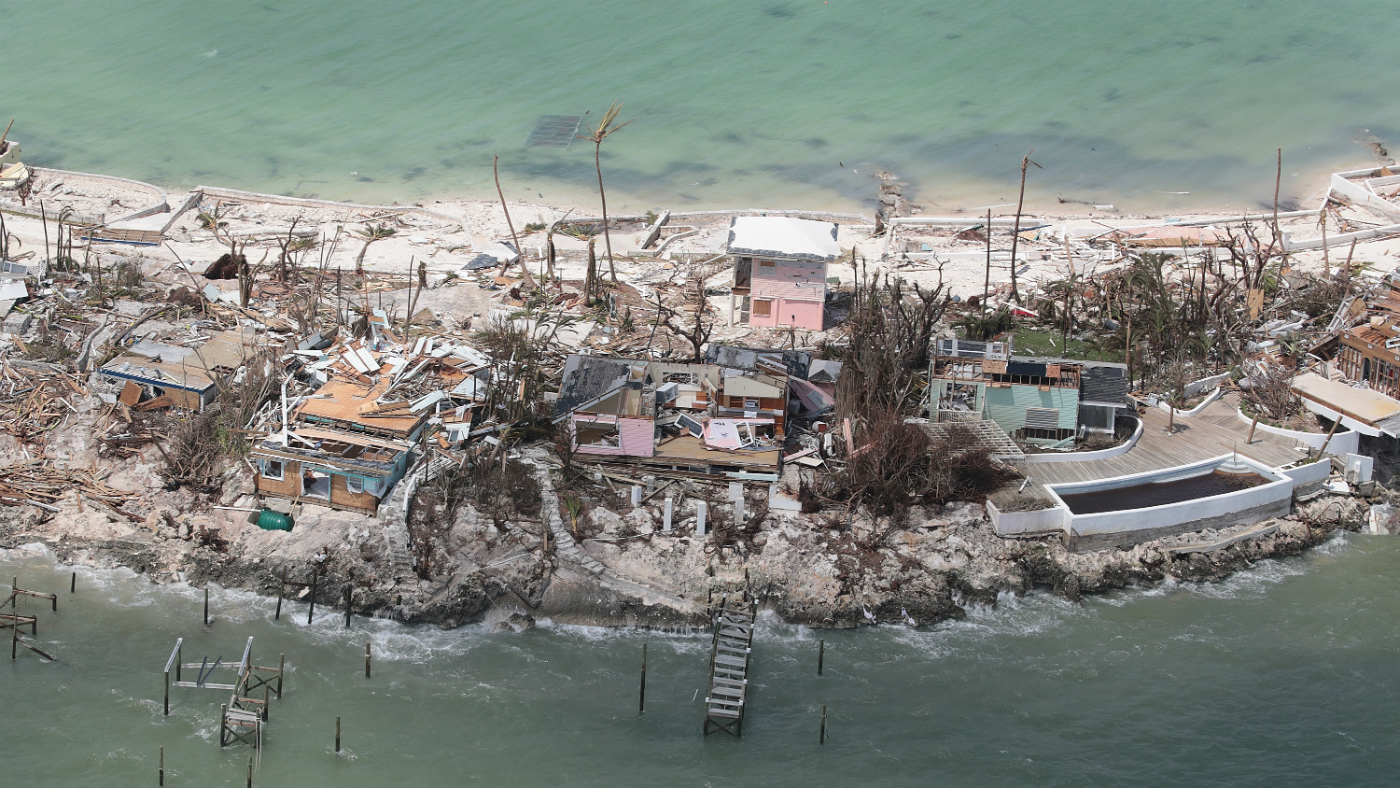Slow hurricanes: the phenomenon baffling scientists
Tropical storm Dorian is creeping towards US east coast after stalling over northern Bahamas

A free daily email with the biggest news stories of the day – and the best features from TheWeek.com
You are now subscribed
Your newsletter sign-up was successful
Hurricane Dorian has left a trail of death and destruction after stalling over the northern Bahamas for more than 24 hours earlier this week.
At least 20 people have been confirmed dead and many more are missing after the slow-moving storm battered the islands with wind, rain and surging seas. An estimated 13,000 homes were destroyed or severely damaged, and around 70,000 people left in need of urgent aid, according to United Nations officials.
Dorian is the strongest storm to hit the Bahamas since records began, with sustained winds of up to 185mph, says the BBC.
The Week
Escape your echo chamber. Get the facts behind the news, plus analysis from multiple perspectives.

Sign up for The Week's Free Newsletters
From our morning news briefing to a weekly Good News Newsletter, get the best of The Week delivered directly to your inbox.
From our morning news briefing to a weekly Good News Newsletter, get the best of The Week delivered directly to your inbox.
And after being downgraded from a Category 5 hurricane to a Category 2, it has regathered strength and is moving northwards towards the US east coast as a Category 3, producing 115mph sustained winds.
Residents along the US coast from Georgia to Virginia have been warned to listen out for emergency announcements as the hurricane slowly approaches. The US National Hurricane Center (NHC) has forecast the centre of Dorian to hit South Carolina on Thursday.
“Time to get out is running out,” said South Carolina governor Henry McMaster.
So what is a slow hurricane and why is it so dangerous?
A free daily email with the biggest news stories of the day – and the best features from TheWeek.com
The damage that slow-moving hurricanes can inflict is far greater than with standard hurricanes because they creep along - and sometimes stall - over land. As climate scientist Timothy Hall explains, this prolongs “the time when a community is subjected to devastating winds and drenching rain”, says The Washington Post.
When Dorian stalled over the Bahamas, “it shifted a mere 40km (25 miles)” in a day, reports Science News.
Hall, of the Nasa Goddard Institute for Space Studies in New York City, explains: “Hurricanes are like corks floating on a stream. Their paths are determined by the large-scale wind fields in which they sit.
“When those wind fields collapse temporarily - like they did for Dorian and did for Harvey in 2017 - the hurricane doesn’t have any guidance. It just stalls until a new set of wind fields is in place.”
Fellow climate scientist James Kossin says that over the past 70 years, cyclones across the board have been slowing down - though the reasons for this deceleration remain unclear.
Kossin’s research, outlined in a paper published in the journal Nature last year, found that “tropical-cyclone translation speed has decreased globally by 10% over the period 1949–2016”.
He notes that these slower hurricanes bring significantly more rainfall over land.
“The unprecedented rainfall totals associated with the ‘stall’ of Hurricane Harvey over Texas in 2017 provide a notable example of the relationship between regional rainfall amounts and tropical-cyclone translation speed,” he says.
And according to Hall, storms have become much more likely to stall over land.
He told the Post that watch Dorian over the Bahamas earlier this week, he was astonished to find it “just spinning there, spinning there, spinning there, over the same spot”.
“You can’t help but be awestruck to the point of speechlessness,” he added.